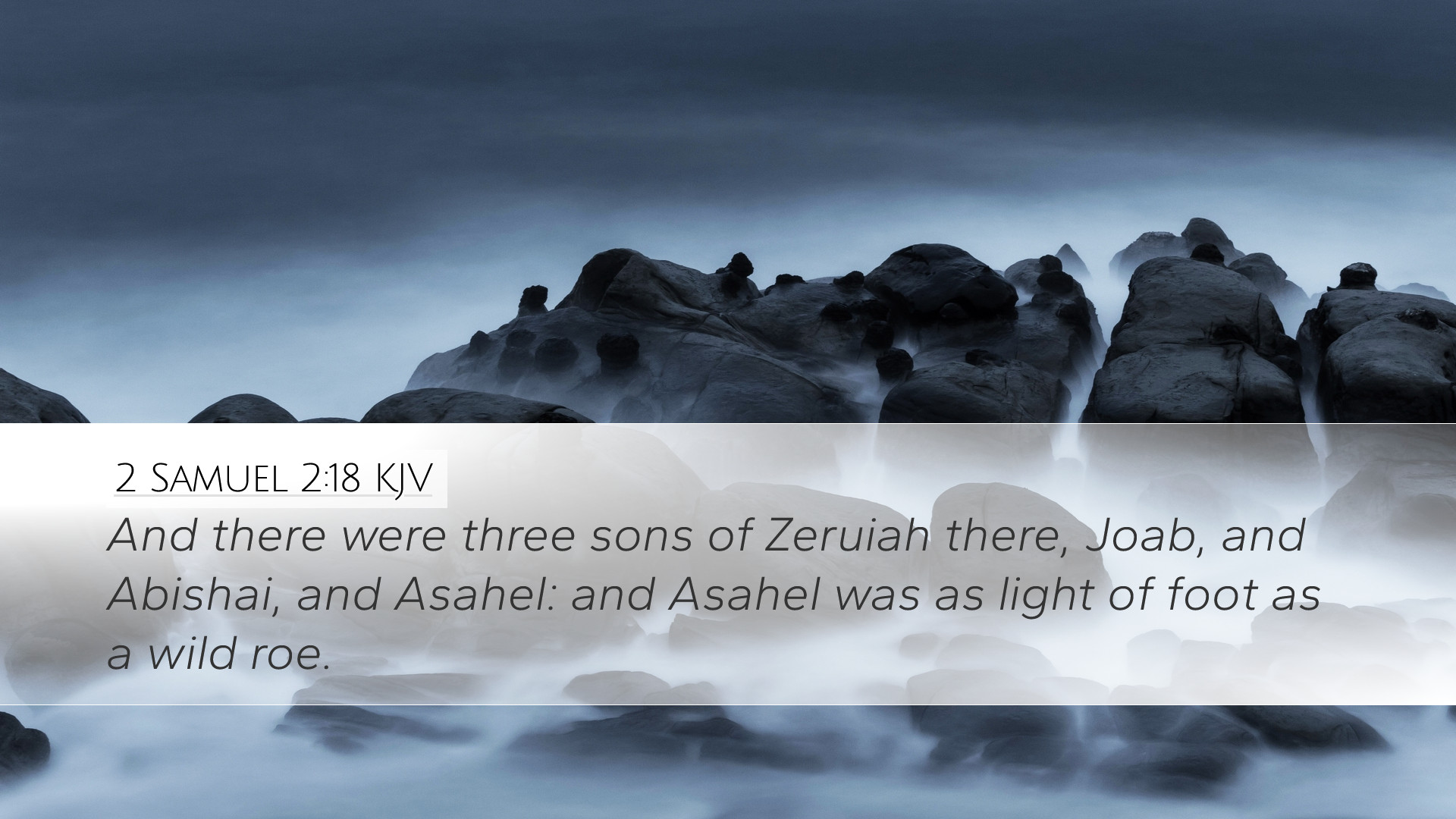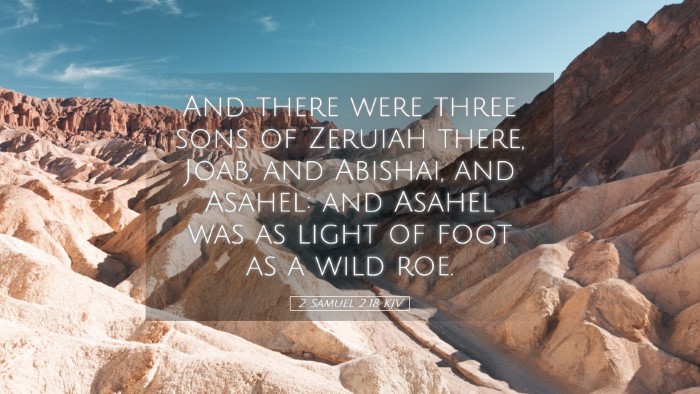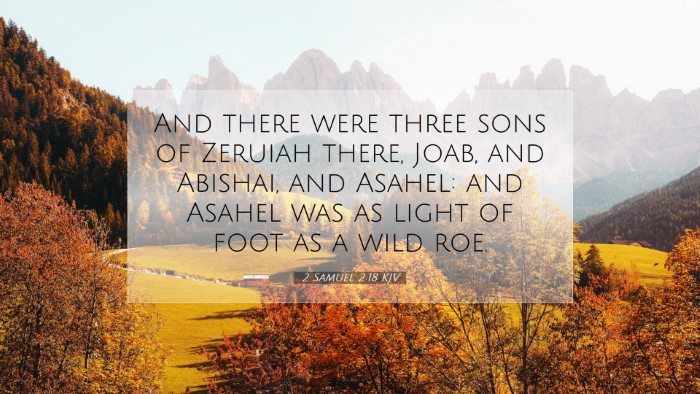Commentary on 2 Samuel 2:18
Bible Verse: 2 Samuel 2:18 - "And there were three sons of Zeruiah there, Joab, and Abishai, and Asahel: and Asahel was as light of foot as a wild roe."
Overview and Context
The passage occurs within the narrative of the early days of David's rule as king over Judah following the death of Saul. This verse introduces key figures in David's military affairs and establishes the character of Asahel, who plays a pivotal role in the subsequent events of David's ascent to power.
Insights from Public Domain Commentaries
Matthew Henry's Commentary
Matthew Henry highlights the significance of Asahel's swift-footedness, likening it to a "wild roe." This description is not merely a physical attribute but symbolizes agility and a certain zeal for action that would characterize Asahel's involvement in the conflicts to come. Henry notes:
- Divine Providence: The mention of Asahel and his brothers sets the stage for the fierce conflicts during the division of Israel. Henry emphasizes that God was at work even in these turbulent times, shaping the leaders and their capabilities for the tasks ahead.
- Family Loyalty: Zeruiah's sons exemplify strong familial bonds. Their unity in support of David signifies the importance of loyalty, particularly in leadership roles, which reflects a recurring theme within the biblical narrative.
Albert Barnes' Notes on the Bible
Barnes expounds on the character of Asahel within the context of the military dynamics that would unfold. He points out that Asahel's swiftness made him a formidable figure but also a tragic one:
- Characterization of Asahel: Asahel's speed symbolizes his eagerness to prove himself and to engage in battle, echoing the youthful fervor often seen in biblical characters. His likeness to a "wild roe" suggests not only physical agility but also a sense of unpredictability in conflict.
- Consequences of Zeal: Barnes warns that Asahel's eagerness might lead him into perilous situations. His speed, while an asset, could be a double-edged sword, reflecting a theme of caution in zealous pursuits. This introduces a tension between prowess in war and discernment in leadership.
Adam Clarke's Commentary
Clarke provides a detailed analysis of the context surrounding Asahel along with an etymological understanding of his name and character:
- Name Significance: The name "Asahel" means "God has made," suggesting a divine purpose underlying his existence and actions. Clarke underscores that Asahel's abilities were divinely bestowed, aligning with the overarching biblical narrative of providence.
- Military Dynamics: Clarke reflects on Asahel's role within David’s military ranks. His speed can be seen as a symbol of the swift dynamics of political and military alliances during this period following Saul’s reign. As a character, he embodies the vigor and unpredictability of warfare.
- Symbolism of Footspeed: The comparison to a "wild roe" conjures themes of freedom and the untamed spirit of young men in battle. Clarke notes that such qualities are critical in the context of leadership and governance, as they can influence strategies and outcomes in war.
Theological Reflection
This verse is rich in theological implications that resonate with both historical contexts and contemporary applications. The interplay of divine providence with human agency highlights the complexities of leadership:
- Divine Sovereignty: The mention of Asahel and his brothers illustrates God's sovereignty in the midst of chaos. God raises leaders with distinct qualities to fulfill His purposes, a recurring theme throughout biblical history.
- Human Responsibility: While Asahel is gifted, his choices will lead him onto paths of conflict. This serves as a reminder for pastors and leaders: spiritual gifts must be utilized with wisdom and restraint, lest they lead to dangerous outcomes.
- Impact of Family Heritage: The closeness of Zeruiah’s sons provides a model for the importance of family bonds in leadership contexts. Today, this encourages us to foster strong relationships that support our spiritual and organizational missions.
Conclusion
2 Samuel 2:18 offers a glimpse into the dynamics of David's army and the character of Asahel as both a capable warrior and a symbol of youthful fervor. By weaving together insights from notable commentaries, we recognize the intersection of divine providence, human agency, and moral responsibility. This verse challenges pastors, students, and theologians to reflect on leadership qualities, the significance of familial ties, and the importance of balancing zeal with discernment in ministry and life.


